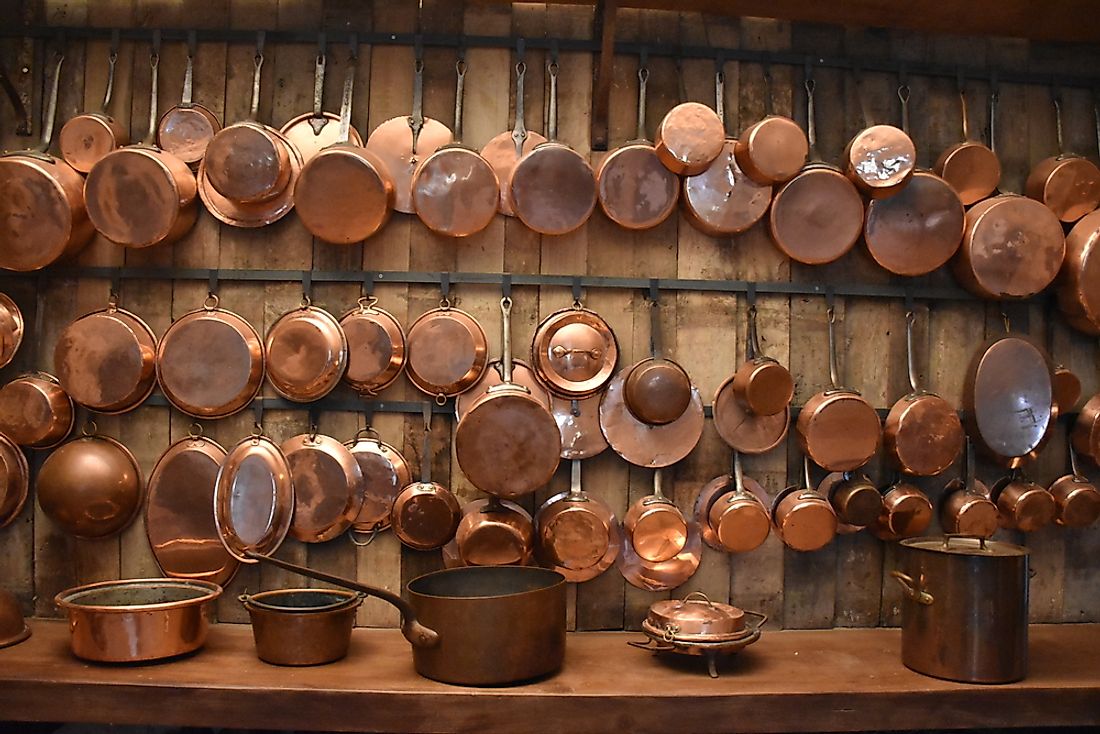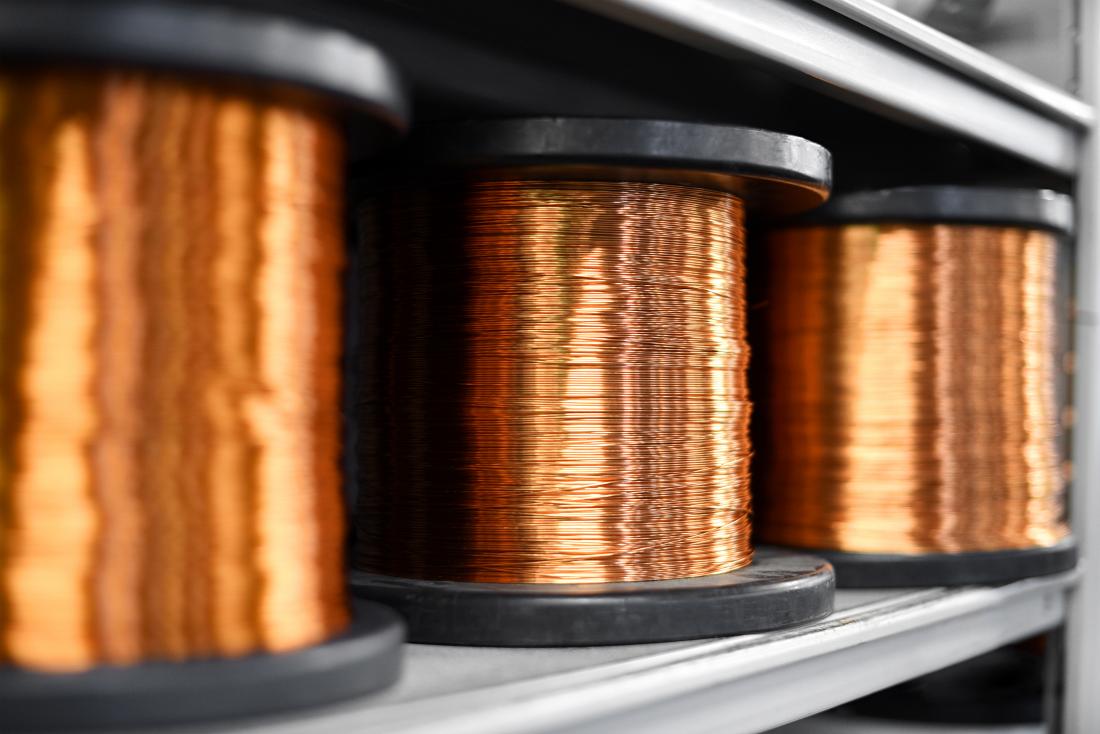Enhancing Your Kitchen with Premium Copper Products: Tips and Finest Practices
Enhancing Your Kitchen with Premium Copper Products: Tips and Finest Practices
Blog Article
Discovering the Diverse Applications of Copper Products in Modern Industries
From boosting the effectiveness of electric systems to playing an important role in renewable power technologies, the adaptability of copper is obvious. As sectors increasingly focus on innovation and sustainability, the diverse applications of copper call for a closer exam, especially concerning their potential effect on future technological advancements and environmental methods.
Electric Applications of Copper
Copper is an essential material in the electrical market, representing around 60% of the complete demand for non-ferrous metals worldwide - Copper Products. Its exceptional electric conductivity, which is virtually two times that of light weight aluminum, makes it the favored choice for a variety of electric applications. From wiring systems in business and household structures to high-voltage power transmission lines, copper ensures efficiency and reliability in electrical power shipment
In enhancement to electrical wiring, copper is important to the manufacturing of electrical components such as generators, electric motors, and transformers. These elements take advantage of copper's thermal conductivity and malleability, important for warmth dissipation and reliable efficiency. In addition, copper's resistance to rust improves the life expectancy and toughness of electrical systems, making it an economical option in the long-term.
The growth of eco-friendly energy resources, such as solar and wind power, has better boosted the demand for copper in electric applications. As industries change towards lasting energy remedies, copper's role comes to be much more essential. Generally, the versatility and efficiency characteristics of copper solidify its condition as a cornerstone product within the electric industry, driving technology and performance throughout various applications.
Pipes and Piping Solutions
In modern-day pipes systems, the option of materials substantially affects both performance and durability. Copper has actually emerged as a favored choice because of its special properties, consisting of rust resistance and antimicrobial features. These attributes guarantee that copper piping remains durable and safe for moving drinkable water, a vital consideration in household and commercial applications.
Among the crucial advantages of copper in pipes is its capacity to withstand high temperatures and pressures, making it ideal for a range of applications, from warm water systems to home heating and cooling networks. Furthermore, copper's flexibility permits much easier setup in intricate piping designs, reducing the danger of failings and leaks.
An additional noteworthy benefit is copper's lengthy life-span, typically exceeding 50 years with correct maintenance. This durability not just decreases substitute costs yet also adds to sustainable methods by lowering waste. Copper's recyclability lines up with modern-day ecological criteria, promoting a circular economy within the plumbing industry.
Copper in Renewable Resource
The versatility of copper expands beyond pipes applications, playing a vital role in the renewable energy industry. In solar panels, copper is used in photovoltaic or pv cells and electrical wiring, facilitating effective power conversion and transmission.

Furthermore, as the worldwide need for electrical automobiles (EVs) rises, copper's function in battery systems and charging infrastructure ends up being much more considerable. The material's ability to conduct electrical power efficiently is essential to the performance of EV batteries, boosting array and charging rate.
Copper's Function in Electronics
Electronics making counts greatly on copper's phenomenal properties, specifically its high electric conductivity and thermal efficiency. These attributes make copper an excellent option for a vast array of electronic components, including adapters, circuit card, and wiring. The steel's capability to efficiently transfer electric signals makes sure marginal energy loss, which is essential in high-performance digital devices.
In addition, copper's thermal conductivity plays a official source significant role in warmth dissipation, securing delicate components from overheating. This is particularly crucial in contemporary electronic devices, where small styles lead to enhanced warm generation. Copper is also preferred for its malleability and ductility, permitting it to be conveniently formed right into intricate layouts that satisfy the demands of advanced digital applications.
With the rise of customer electronic devices, telecoms, and electric lorries, the demand for copper in the electronic devices industry continues to grow. As innovations in innovation evolve, copper stays integral pop over to these guys to achieving greater efficiency and reliability in digital products. Its recyclability better improves its allure, as manufacturers look for sustainable remedies without compromising high quality. Thus, copper continues to be a cornerstone product in the ever-expanding area of electronic devices.
Innovative Uses in Manufacturing

One noteworthy application remains in additive production, where copper-based materials are used in 3D printing processes. This permits the production of complex geometries and light-weight parts, especially in the aerospace and auto sectors. Furthermore, copper's thermal conductivity makes it a perfect option for warmth exchangers, enhancing efficiency in industrial air conditioning systems.
In addition, the rise of clever manufacturing has actually seen the unification of copper in IoT devices, where its conductive capabilities sustain innovative sensing technologies. In the realm of renewable resource, copper is crucial in the production of photovoltaic panels and wind generators, promoting more efficient energy conversion and circulation.
As industries strive for sustainability and development, copper's flexibility and performance remain to place it as a crucial material, driving developments in manufacturing and adding to the growth of smarter, much more effective products.
Conclusion
In summary, copper items demonstrate exceptional convenience throughout different contemporary markets. Copper Products. Their remarkable conductivity boosts electric applications, while rust resistance guarantees dependability in plumbing. The indispensable function of copper in renewable resource and its vital function in electronic devices underscore its value in advancing sustainable techniques. Furthermore, innovative usages in making emphasize copper's versatility and enduring value. Jointly, these applications illustrate copper's crucial payment to technological progression and industrial performance in contemporary society.
From enhancing the performance of electrical systems to playing a vital role in eco-friendly energy technologies, the adaptability of copper is evident. As markets significantly prioritize development and sustainability, the diverse click here to read applications of copper call for a closer exam, particularly regarding their possible impact on future environmental techniques and technological advancements.
The development of eco-friendly power sources, such as solar and wind power, has actually further enhanced the need for copper in electric applications. On the whole, the versatility and performance qualities of copper strengthen its status as a keystone product within the electrical field, driving innovation and efficiency across various applications.
The convenience of copper prolongs beyond plumbing applications, playing an important function in the sustainable energy sector.
Report this page